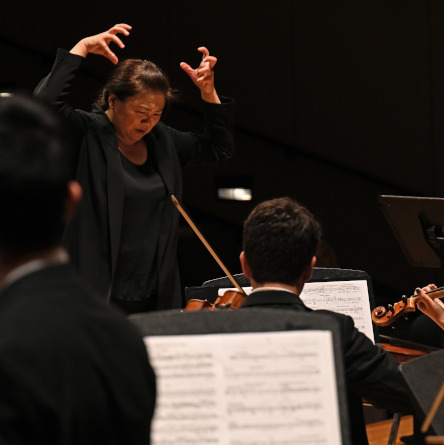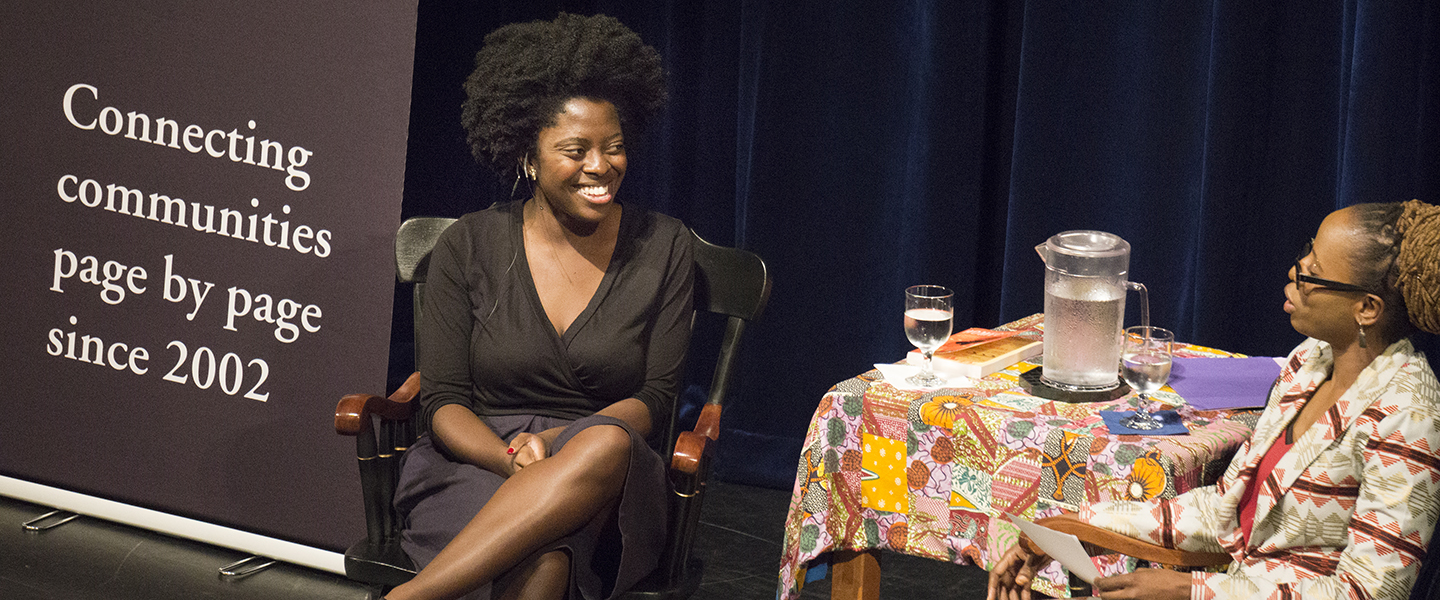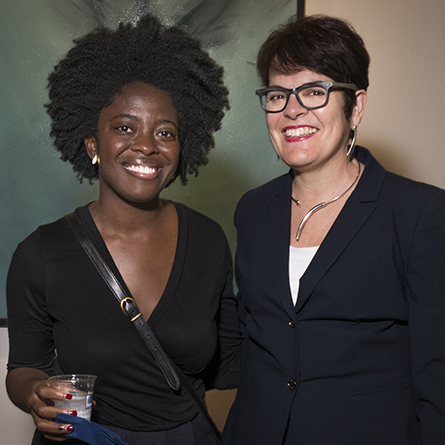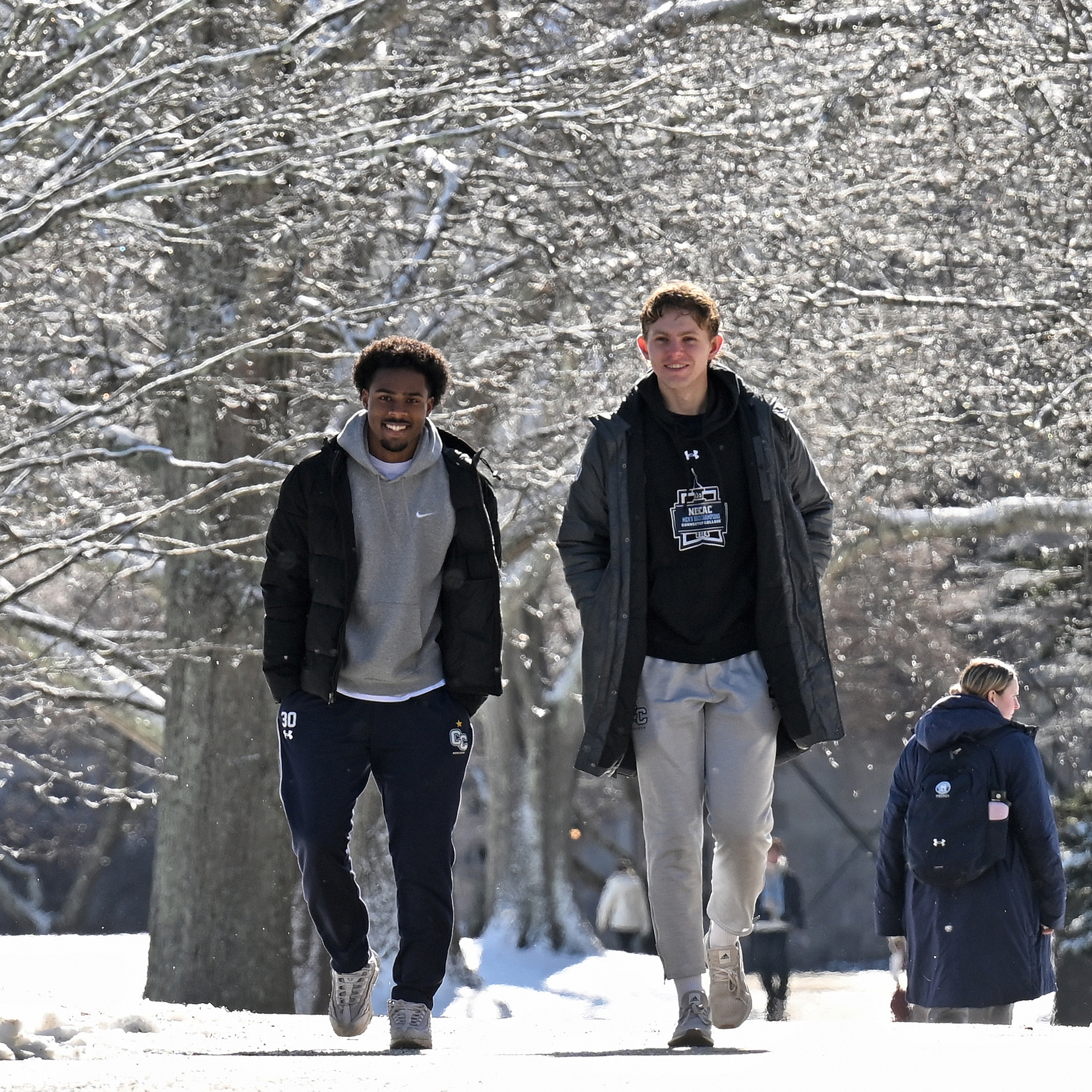
Author Yaa Gyasi visits Connecticut College
Yaa Gyasi, author of the acclaimed novel Homegoing, spoke about her debut work in a lively Q&A with Nathalie Etoke, associate professor of French and Africana studies and associate director of the Center for the Comparative Study of Race and Ethnicity, on Wednesday in Palmer Auditorium.
Homegoing traces the impact of the slave trade through generations of a single family. In 18th-century Ghana, two half-sisters are born into different villages, each unaware of the other; Homegoing follows the parallel paths of these sisters and their descendants through eight generations: from the Gold Coast to the plantations of Mississippi, and from the American Civil War to Jazz Age Harlem.
During their conversation, Gyasi and Etoke discussed specific passages and characters from the novel, and Gyasi highlighted some of the themes and challenges that she confronted while writing the book. Concerned that traditional textbooks often miss the nuances and human dimensions that are woven throughout the history of the slave trade, Gyasi explained that she was driven by a desire to establish an intimate connection between the reader and her characters.
“It was very important to me that I show slavery isn’t something that happened to nameless, faceless masses,” Gyasi said. “It happened to real people with individual stories, who had thoughts and hopes and fears and dreams, and all of the things that make us human.”
Homegoing was part of the One Book One Region series, an initiative that takes the concept of a small book club and expands it throughout southeastern Connecticut. The novel, which was the summer reading choice for every incoming first-year student at Conn, has been met with wide acclaim. It won the National Book Critics Circle’s John Leonard Award for best first book, and the PEN/ Hemingway Award.
In her introduction to the Q&A, Connecticut College President Katherine Bergeron spoke about the importance of the novel’s lessons for today’s students.
“This is an important story, because it reveals how much we ourselves are implicated in the histories that it tells,” Bergeron said. “How we deal with that history in our present moment is something we talk a lot about on this campus. Our Center for the Comparative Study of Race and Ethnicity promotes dialogue on these issues of race and power and social difference in order to educate students for a more just world.”
Gyasi, who was born in Ghana but moved to the United States when she was a child, described a trip she took in college to the country of her birth that had a profound impact on her and inspired her to write Homegoing. Gyasi said it was a tour of the Cape Coast Castle, where slaves were imprisoned before being sold and sent to America, that triggered her passion for telling the largely untold stories of what people had to endure at the hands of their captors.
Despite the tragic history Gyasi’s book explores, she said she was consistently amazed by the glimmers of resilience and optimism that came through while she was doing her research, and made sure to reflect that in the story.
“There’s a pattern of hope,” she said. “These are people who always believe that their children will have better lives than they did, and I think that determination to create something new and better out of something horrible is something beautiful that comes out of the African diaspora, and that’s something I wanted to celebrate.”
The One Book One Region series was founded by Betty Anne Reiter, who serves as the Director of the Groton, Connecticut, public library. Connecticut College launched a partnership with the program in 2015. Starting in July, the library hosted a variety of events inspired by Homegoing, including musical performances, film screenings and exhibitions of work by Ghanaian artists. Last night’s event at the College marked the culmination of this year’s program.






